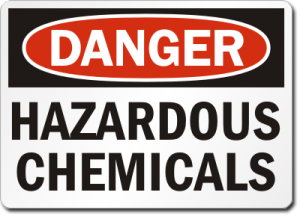Stress Less
There are six types of stress that our bodies are subject to. We need a certain amount of each type of stress to keep us healthy, but at the same time too much stress can be very damaging. It is believed that 99% of all disease is caused by stress and the body can’t tell the difference from one stressor to the next. So you might be over stressed from several negative stressors i.e. poor nutrition and emotional stress from work, and if you try to include a stress that might normally be beneficial like exercise, even though you might feel good afterwards from the endorphins your body releases, you are only adding to an already over stressed body and this is going to have an even bigger negative effect and cause long term problems. The goal here is to work on lowering the negative stressors in your life so your body can deal with the others and not become run down. Here are the 6 main stressors we deal with in our day to day lives.
1. Physical stress:
This type of stress is primarily caused from movement/exercise but also includes injuries such as fall or hit to the body. Falls, hits, cuts etc are obviously bad and most of the time out of our control, they are usually just  accidents but exercise and movement is in our control and too little or too much can stress the body out in a negative way. The body has a constant flow of fluids running through it and movement is a vital part of keeping this flow optimum. Too little exercise or movement will stagnate the body much like a stagnant pond which becomes toxic and polluted. We need movement to aid your circulation. Too little exercise also leads to weight gain, sluggishness, low energy and laziness. On the other end of the scale, too much exercise will over stress the body as well. It will suppress your immune system leaving you open to contracting infections and illnesses. Your body will recover at a much slower rate and you will feel tired, drained and lacking sleep. Your performance will be hindered and you will not progress through your training goals as your body is too stressed to recover and grow. Another big aspect that causes physical stress is poor posture and in today’s society, most people suffer poor posture due to their jobs sitting at computers and office desks, slouched over for 8hrs plus a day. Poor posture restricts breathing and circulation, it compresses the spine, joints and vital organs. This will lead to pain and injury.
accidents but exercise and movement is in our control and too little or too much can stress the body out in a negative way. The body has a constant flow of fluids running through it and movement is a vital part of keeping this flow optimum. Too little exercise or movement will stagnate the body much like a stagnant pond which becomes toxic and polluted. We need movement to aid your circulation. Too little exercise also leads to weight gain, sluggishness, low energy and laziness. On the other end of the scale, too much exercise will over stress the body as well. It will suppress your immune system leaving you open to contracting infections and illnesses. Your body will recover at a much slower rate and you will feel tired, drained and lacking sleep. Your performance will be hindered and you will not progress through your training goals as your body is too stressed to recover and grow. Another big aspect that causes physical stress is poor posture and in today’s society, most people suffer poor posture due to their jobs sitting at computers and office desks, slouched over for 8hrs plus a day. Poor posture restricts breathing and circulation, it compresses the spine, joints and vital organs. This will lead to pain and injury.
2. Chemical stress:
Chemical stress comes in the form of toxic chemicals that we come in contact with but also when the body’s essential chemicals like hormones, enzymes and neurotransmitter become imbalanced. Anything you put on your body, your body will absorb and nearly all commercial soaps, moisturizers, shampoos, conditioners, deodorants, perfumes, etc contain toxic chemicals that are absorbed into the body. Even your clothes and linen can contain toxic chemical from the manufactures and all these chemicals stress the body out. Other chemical stressors you may come into contact with are house hold cleaning product, gardening chemicals, pool chemicals, working in factories that use chemicals and so on. All these chemicals are easily absorbed into the body and can be very harmful so the body will naturally store these toxins in body fat to protect the toxins from destroying your organs. These chemical stressors can lead to weight gain, tiredness and sluggishness, skin and hair conditions like acne, psoriasis or dandruff and will lead to long term disease.
perfumes, etc contain toxic chemicals that are absorbed into the body. Even your clothes and linen can contain toxic chemical from the manufactures and all these chemicals stress the body out. Other chemical stressors you may come into contact with are house hold cleaning product, gardening chemicals, pool chemicals, working in factories that use chemicals and so on. All these chemicals are easily absorbed into the body and can be very harmful so the body will naturally store these toxins in body fat to protect the toxins from destroying your organs. These chemical stressors can lead to weight gain, tiredness and sluggishness, skin and hair conditions like acne, psoriasis or dandruff and will lead to long term disease.
3. Electromagnetic stress:
 In nature, this comes in the form of sunlight and the Earth’s electromagnetic field but now we have to deal a much higher level of electromagnetic radiation through x-rays, microwaves, TVs, phones, computers and all other electronic devices, or if you live close to power stations or have high powered power cables running through your house or unit close to sleeping or working areas. This will drastically disrupt your body’s natural electromagnetic field which is normally in tune with the earth’s natural electromagnetic fields. This negative electromagnetic radiation will create biological stress as well as altering your hormones, immune system and autonomic nervous system leading to long term health issues.
In nature, this comes in the form of sunlight and the Earth’s electromagnetic field but now we have to deal a much higher level of electromagnetic radiation through x-rays, microwaves, TVs, phones, computers and all other electronic devices, or if you live close to power stations or have high powered power cables running through your house or unit close to sleeping or working areas. This will drastically disrupt your body’s natural electromagnetic field which is normally in tune with the earth’s natural electromagnetic fields. This negative electromagnetic radiation will create biological stress as well as altering your hormones, immune system and autonomic nervous system leading to long term health issues.
4. Psychic or Mental stress:
Planning, problem-solving and overcoming challenges are all forms of positive mental stress and help us grow and develop into balanced human beings. Unwanted mental stress includes destructive relationships, financial worries and negative thinking i.e. focusing on what you don’t have instead of what you do have, or obsessing on the negative side of a situation rather than looking for the positive. Psychic and mental stress is often the hardest form of stress to resolve as many of your thought processes and behavioural patterns behind this form of stress stem from our experiences of past stressful situations as far back as childhood and are often deeply seeded into our bodies programming.
develop into balanced human beings. Unwanted mental stress includes destructive relationships, financial worries and negative thinking i.e. focusing on what you don’t have instead of what you do have, or obsessing on the negative side of a situation rather than looking for the positive. Psychic and mental stress is often the hardest form of stress to resolve as many of your thought processes and behavioural patterns behind this form of stress stem from our experiences of past stressful situations as far back as childhood and are often deeply seeded into our bodies programming.
5. Nutritional stress:
Aside from the chemical stress in commercial grade food through the absorption of artificial colourings, flavourings, preservatives, pesticides, fungicides, hormones, stabilizers etc, we can also encounter stress through nutrient  deficiencies and blood sugar imbalances caused by poor quality food and getting your meal volume, frequency and macro nutrient ratio wrong (fats:carbohydrates:proteins). Commercial grade food has far less nutrition compared to organic as commercial food is typically grow in depleted soil. Storage and shipping of fresh food also results in nutrient loss. When you get your food ratios, volume and frequencies wrong, this creates imbalances in your blood sugar levels and your body goes on a rollercoaster ride trying to balance it out typically resulting in the body releasing adrenalin and cortisol which are both hormones that in excess will lead to stress related illness and disease. It is important that you eat the right quality of food in the right volumes, frequencies and ratios for your own individual needs.
deficiencies and blood sugar imbalances caused by poor quality food and getting your meal volume, frequency and macro nutrient ratio wrong (fats:carbohydrates:proteins). Commercial grade food has far less nutrition compared to organic as commercial food is typically grow in depleted soil. Storage and shipping of fresh food also results in nutrient loss. When you get your food ratios, volume and frequencies wrong, this creates imbalances in your blood sugar levels and your body goes on a rollercoaster ride trying to balance it out typically resulting in the body releasing adrenalin and cortisol which are both hormones that in excess will lead to stress related illness and disease. It is important that you eat the right quality of food in the right volumes, frequencies and ratios for your own individual needs.
6. Thermal stress:
Your body undergoes natural thermal stress in order to regulate your core temperature at a constant 32°C (98.6°F). Extreme temperatures or anything that brings your body temperature too high or too low for an extended amount of time is bad thermal stress. Fluctuations in temperature can also contribute to negative stress and this is why people who are already stressed out tend to get coughs, colds, and the flu when the seasons change as they are already to stressed out to deal with the additional thermal stress of the weather changes.
amount of time is bad thermal stress. Fluctuations in temperature can also contribute to negative stress and this is why people who are already stressed out tend to get coughs, colds, and the flu when the seasons change as they are already to stressed out to deal with the additional thermal stress of the weather changes.

Very nice article by you. Thanks for providing this.